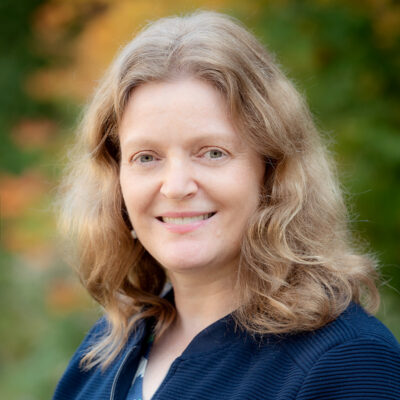Newsroom
Microbial Diversity Expansion for Applied Science (MiDAS) project receives $6.5 million in funding
Microbial Diversity Expansion for Applied Science (MiDAS) project receives 6.5 million in funding from the Canadian Foundation for Innovation (CFI) and B.C. Knowledge Development Fund (BCKDF)
What do biotechnology, food fermentation and biomedical advancements all have in common? Yeast. Tiny but mighty, yeast is used as a model organism across a wide variety of scientific fields and industries. Whether producing insulin for diabetic treatments, enhancing the flavour profile of wine or cleaning up waste water, yeast serves many critical roles as science strives to lesson our impact on the environment, improve human health and support our economy.
A group of researchers at the University of British Columbia (UBC) and UBC Okanagan (UBCO), led by Dr. Thibault Mayor of the Michael Smith Laboratories (MSL), and Dr. Vivien Measday of the Faculty of Food and Land Systems, are thrilled to be combining their knowledge and laboratory studies on yeast. Thanks to their successful Canadian Foundation for Innovation (CFI) and B.C. Knowledge Development Fund (BCKDF) grant, representing a $6.5 million investment, they are poised to build up lab infrastructure and effective research capacity in the coming years. With 13 expert yeast biologists collaborating on research from six different fields, their Microbial Diversity Expansion for Applied Science (MiDAS) project is a truly golden opportunity for the field.
Read the BC Provincial Government’s announcement here >
“Receiving this grant will bring about a very strong renewal broadly across the yeast community. A lot of us are coming from different places; we have people at Children’s Hospital, the BC Cancer Agency, UBC Okanagan and here at UBC in multiple departments,” says Dr. Mayor.
“Working together on this application brought a new focus to our team to apply our fundamental yeast knowledge to an industrial focus,” adds Dr. Measday.
“Our project is unique in that it begins with a very narrowly focused element, yeast biology, but branches out broadly in its applications. All the resources that we are building are designed to work with the yeast model organism. This is really at the core of the innovative research we are doing,” explains Dr. Mayor.
Yeast and humans share a long history together. Used for thousands of years in the preparation of fermented foods like bread and wine, yeast has been studied by biologists for centuries. In the last several decades researchers have been working to uncover new fundamental biological pathways (interactions among molecules within a cell leading to certain cellular processes) within yeast cells that are relevant to human health. Scientists like Mayor aim to bridge basic research focused on delineating biological pathways that control the cellular environment and secretion, and applied science to identify and tailor new strains for novel biotechnology applications.
MiDAS researchers will leverage high-throughput methods, which rely on automation, to identify new promising strains of yeast that can be used as “cell factories”. Essentially researchers are engineering the yeast’s biological pathways to produce a variety of useful proteins. Yeast cells can be used this way to create medicines, understand diseases, and produce enzymes that treat waste water and remove toxic compounds. These technologies can even be harnessed to create enzymes that can remove the smoke taint that permeates wines produced in areas prone to wildfires.
“We are trying to identify yeast strains that can better produce these enzymes. Some of these enzymes can’t be produced at high numbers. We believe that some of the pathways that control the cellular environment are preventing these cells from producing high numbers of these enzymes. Our hope is to identify new strains of yeast with enhanced capacities to be used as cell factories and expand the biotechnology applications.” Dr. Mayor explains.
The opportunities are endless, and that is what makes this research so critical to so many fields.
The researchers working on the MiDAS project have a wide variety of focuses and applications of the science.
- The Brumer lab, at the MSL, is identifying boutique enzymes that can be used for novel applications, including the transformation of renewable biomass into valuable chemicals and materials.
“Protein production is a major bottleneck that limits the discovery of new biocatalysts to augment or replace traditional chemical processes. The MiDAS infrastructure will greatly facilitate our efforts to pursue a broader range of targets than previously possible,“ states Dr. Harry Brumer.
- The Loewen lab, at the UBC Life Sciences Institute, is looking at pathways that regulate both organelle and lipid biology which impact the cell’s capacity to secrete proteins and is also relevant to diseases like diabetes.
- The Mayor lab, at the MSL, is looking for pathways that control the cellular environment and regulate it. They’re seeking ways to produce better cell factories that secrete larger quantities of proteins that can be used both for clean tech and medical applications.
- The Measday lab, at the Wine Research Centre, is identifying novel yeast strains that can used by BC wineries for wine fermentation to capitalize on the potential of BC terroir.
“Trying to identify and optimize yeast strains for wine fermentation is like looking for a needle in a haystack – we need to carry out hundreds of fermentations at the same time to find an ideal strain. With the MiDAS project, the UBC Wine Research Centre will have the high-throughput robotics, wine fermentation and metabolite analysis equipment needed to identify BC native yeast strains that produce wines with unique flavour profiles,” explains Dr. Measday.
- The Zandberg Lab, at UBCO, is developing methods to identify sugar bound molecules in wine fermentations that can modify the taste profile of wines such as smoke taint compounds or the more pleasant-smelling terpenes. They further investigate how sugar-linked wine/grape compounds are metabolized by yeasts during the fermentation process and again by gut microbes during digestion.
“The MiDAS project will bring novel applications to various fields and hopefully bring about some new clean tech that will help the environment. Perhaps agriculture will go through another revolution, one where fermentation, which is mostly based on yeast and fungi, will revisualize how we can process food and reduce our impact on the earth,” reflects Dr. Mayor.
The funding for this project is timely as we move through a global pandemic health crisis while experiencing the effects of human caused climate change viscerally around the globe. It is a crucial time in science for collaboration across disciplines, using environmentally conscious biotechnology to find solutions to the challenges facing today’s world. Yeast biology may hold the key to solve many of the problems we currently face.
Quick Facts about the BC Knowledge Development Fund:
- The BCKDF has awarded over $800 million to over 1,400 projects since the inception of the program in 1998.
- BCKDF funding span sectors such as health and life sciences, nuclear physics, medicine, genomics, biotechnologies, clean tech, agrifoods, energy and mines, environment and climate change and forestry.
- The funding allocation is generally up to 40% from the BC Knowledge Development Fund, up to 40% from the Canada Foundation for Innovation and 20% from other contributors.
Learn More:
To learn more about the B.C. Knowledge Development Fund, visit:
https://www2.gov.bc.ca/gov/content/governments/technology-innovation/bckdf
To learn more about the Canada Foundation for Innovation, visit:
https://www.innovation.ca/
To learn more about the 24 UBC researcher led projects, visit:
https://research.ubc.ca/ubc-awarded-more-22-million-research-infrastructure-projects
To learn more about the University of British Columbia research department, visit:
https://research.ubc.ca/
To learn more about the University of British Columbia-Okanagan research department, visit:
https://ok.ubc.ca/research/


